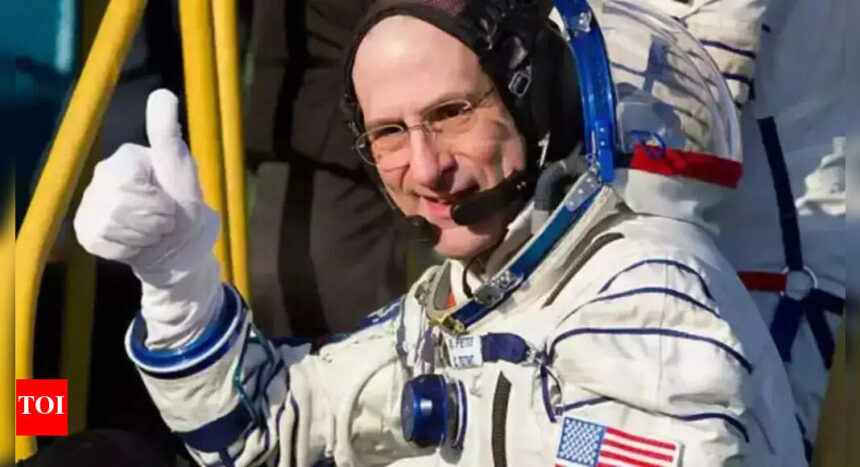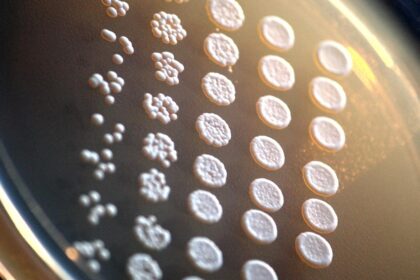NASA’s Oldest Astronaut Celebrates 70th Birthday in Space
At 70, most individuals are gearing up for retirement, looking back on their professional lives, or easing up from the physical strains of daily life. But not Don Pettit. As NASA’s oldest full-time astronaut, Pettit spent his seventh decade floating in space, finishing a gruelling seven-month stint on the International Space Station (ISS). His return to Earth on April 20, 2025, not only marked the end of his 220-day mission but also coincided with his milestone birthday—a day he spent plummeting back through the atmosphere in a cramped Russian Soyuz capsule.
In his first public appearance after coming back to Earth, Pettit provided a frank and scientifically interesting commentary on his experience. Talking from NASA’s Johnson Space Centre in Houston, he explained how weightlessness in space temporarily erased the physical aches of ageing. Instead of being debilitated by age, he found the experience rejuvenating, like travelling back in time to his thirties.
NASA Astronaut Don Pettit Talks About Feeling Young Again in the Weightlessness of Space
Rather than celebrating his 70th birthday with cake and candles, Pettit celebrated in a Russian spacecraft strapped to his body, weathering the fierce re-entry to Earth’s surface. His touchdown on the Kazakh steppe was both a triumph and one of physical endurance. Despite his successful mission, Pettit wasn’t feeling great upon re-entry. After over seven months in microgravity, his body found it difficult to adapt to Earth’s gravitational force. He confessed at the briefing that he vomited upon landing shortly after—which happens to all astronauts coming back from long-duration missions.
He termed the feeling of the return of gravity as abrupt and jerky, which he compared to taking a wave of discomfort. The human body, having spent months suspended in zero gravity, starts relearning to balance, stabilize, and manage blood pressure normally. Pettit remembered that the stiffness, pains, and body "creaks and groans" he was accustomed to on Earth had come back almost immediately—a reminder of how quickly gravity gets reestablished on an older body.
NASA Astronaut Proves Age Is No Barrier to Spaceflight
In space, where there was no constant downward force of gravity, Pettit found relief from the chronic pain and stiffness that typically come with aging. He spoke of the feeling of floating—not as a physical condition but as a healing one. The absence of pressure on joints, the reduction in strain on muscles, and the uninterrupted rest offered by sleeping in microgravity combined to create what felt like a reversal of age. It makes me feel like I’m 30 years old again, Pettit said with evident amazement. The sensation, he said, wasn’t transient; it lasted throughout the mission, fueled by the zero-gravity setting and the rhythmic nature of life on the space station.
Pettit’s Experiments and Photography Redefine Space Science
Even with almost three decades as an astronaut, Pettit’s passion for science never lessened. On his mission, he devoted much of his off-duty time to innovative scientific discovery. He performed a range of unofficial experiments intended to illustrate the behavior of common substances in microgravity—experiments that had nothing to do with his official responsibilities but were meant to educate and inspire.
One of his hobbies was making visual demonstrations of fluid dynamics in space. He tried floating bubbles, piling them up in mid-air, and even created a perfectly spherical honey ball balanced on a spoonful of peanut butter. These playful experiments were not only fun—they provided simple yet compelling insights into the behavior of matter in zero gravity.
Along with hands-on science, Pettit gave a lot of energy to astrophotography. With cameras on the ISS, he took stunning photos of Earth’s auroras, comets blazing across the universe, and satellites glinting with the sun’s light as they flew overhead. His photos not only recorded his mission but also bridged science and art, making it easier for the public to relate to the magic of space.
Pettit Eyes Future Space Missions Despite Physical Toll
Despite his years and the cost of space travel to his body, Pettit has no intention of retiring. In fact, he has said he wanted to fly into orbit again, saying, "I’ve got a few good years left. I could see getting another couple of flights in before I’m ready to hang up my rocket nozzles."
This is more than wishful thinking. Pettit’s mission performance and post-flight health prove that age, coupled with training, experience, and good health, need not be a hindrance to meaningful contributions in space. His stamina and ongoing curiosity are testament to the changing picture of human potential in extreme environments.
Pettit’s Success Challenges Age Limits in Space and Science
Pettit’s mission provides more than a personal triumph—it raises bigger questions about whether space travel could teach us something about aging. The peculiar physiological benefits of space, ranging from relief in the joints to mental clarity, provide potential lessons for medical treatments and aging research on Earth. Researchers are looking more and more at how the body’s acclimation to space could lead to new therapies for age-related diseases like osteoporosis, muscle wasting, and even neurodegeneration.
Furthermore, Pettit’s accomplishment is about the evolving culture of human spaceflight itself. With missions to the Moon and Mars becoming increasingly plausible, and private spaceflight increasing access for broader populations, what it means to be an astronaut is being rewritten. Pettit’s achievement is an indicator that space agencies might increasingly begin to look past age as a boundary, considering instead physical suitability, experience, and mental toughness.
Also Read:
- ISRO and NASAs NISAR mission set to launch in June after years of preparation
Reference : https://timesofindia.indiatimes.com/science/it-makes-me-feel-like-im-30-years-old-again-nasas-oldest-astronaut-don-pettit-celebrates-his-70th-birthday-with-a-rejuvenated-return/articleshow/120724694.cms








